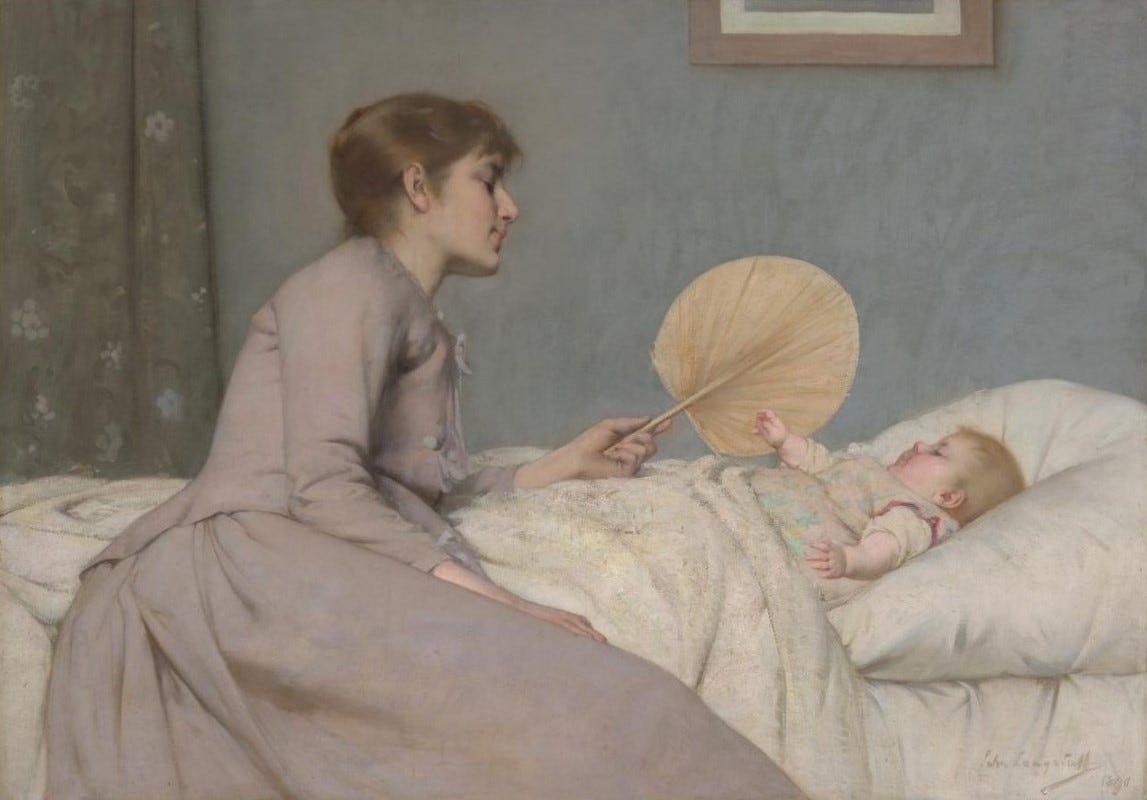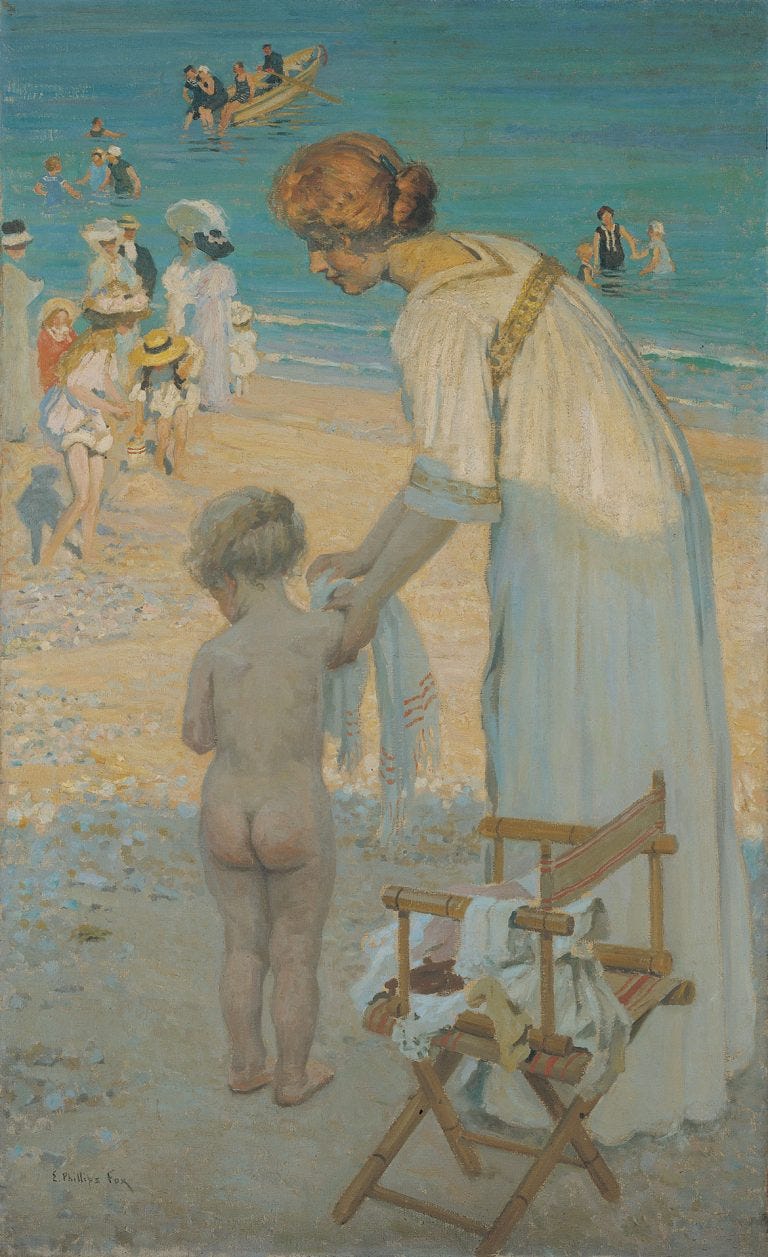How Mother's Day Matters
Author Alison Lloyd's newsletter #41
Happy Mother’s Day for this Sunday!
(Sorry UK readers, I’m on the US/Australasia calendar. Read the email anyway. Because… )
I wrote a short story in advance — for my valued email subscribers — about a mother in a dilemma. I entered the story in a competition. As a by-the-by thing, mostly to get reader feedback.
But I won first prize! ‘At a Crossroads’ is now published on shortfictionbreak.com:
It wasn’t the pram wheels that got stuck when they crossed the trainline, although that was what she worried about. The iron wheel rims always wedged in ruts. You can’t carry a baby everywhere, not when you have another child as well. The three-year-old liked to be out. Even as a baby, he’d worm an arm free from the blanket and wave his fist to the world. You couldn’t swaddle his independence, not the way she wrapped the baby girl’s sweet, paddling limbs. He ran so fast, flying his wooden train engine on invisible tracks of imagination, catching her own heart up into flights of joy, and fear. She couldn’t tell where he might run. She watched him, but not like the hawk that wheeled above the railway crossing. A hawk only had to watch one thing at once, to track its prey, whereas she had both the boy and the baby. Today the babe was fussing, a broken hiccupping snuffle, after a broken night’s sleep. The mother swatted at the fly sticking to the baby’s mouth. The walk would send the child to sleep soon, she knew it would. And it would keep the boy busy, so he wouldn’t poke his sister with his toy… Where was the boy?
If you’re not in a rush for the short story, let’s talk about how Mother’s Day matters. It gives mums and moms everywhere a chance to put their feet up and feel appreciated. And it gives us all a moment to reflect.
Mother’s Day didn’t become an official event until 1914, when US President Woodrow Wilson proclaimed it one. But motherhood was held in high esteem by Victorian society well before then. (I’m writing a novel set in the late Victorian age. As you may have heard me say before…)
When you think about the large families Victorian women bore and cared for, before widespread birth control, I think they deserved ‘love and reverence’, as Woodrow Wilson put it.

When Motherhood is heavenly
I love this serene, luminous picture of a Victorian mother with her baby — the way they’re so wrapped up in each other. At its best, motherhood is like a taste of heaven. It’s delight in another person. It’s an incredibly sweet bond of love, trust and whole-hearted giving.

Our modern objection isn’t so much to the Victorian idea that motherhood is a good thing and a ‘high responsibility’.1 It’s more with the Victorian idea that it’s a woman’s predominant or only responsibility. And we are aware it’s not all sweetness and light.
But it’s complicated…
In 1894, an Australian nurse calling herself ‘Iota’, wrote a novel exploring complex emotions about marriage and motherhood. Towards the end, main character Gwen is struggling with her maternal feelings:
‘Then this haunting, sweet-bitter pain is motherhood,’ she thought, the first day she was up, as she watched the sleeping child gobbling a red fist, ‘and it’s for this that one half the women in the world live and brood Madonna-like over their infants, with that awful peace in their eyes…!’
‘If this feeling grows much more in me I shall go mad,’ she murmured; ‘I am not quite sane now. Baby, my own little baby, can’t you help me to be in absolute touch with the beautiful mysterious things that are the crown of womanhood?’
A Yellow Aster, 1894, p284-5
Reviewers had mixed feelings too. The Australasian newspaper said the book was ‘vigorous’ but was critical of its ‘rawness of style’ and ‘extravagance’. Yes, the writing is a tad melodramatic. But Iota hit a nerve with women at the time — The Yellow Aster was an instant bestseller.
And sometimes hellish
Putting rosy images aside, let’s not kid ourselves. (*GROAN* at that terrible pun). The parent/child relationship can be viscerally painful. Beyond actual childbirth, that is.
Motherhood is a set-up for failure. Mothers want to give their children a perfect life. But their own limitations, the world in general, and even the child’s choices, get in the way. The longings of both parents and children aren’t perfectly realised. And that hurts.
Maybe you’ve got mixed emotions about Mother’s Day. I suggest that if we expect a shiny ‘crown of womanhood’ like Gwen, we will be disappointed. Just maybe we need to let ourselves, our parents and/or our children off the hook, and not expect perfection in this world. Iota’s Gwen was right at the start, when she thought ‘this haunting, sweet-bitter pain is motherhood’.
And that sweet-bitter pain gives life. Or you wouldn’t be reading this!
Mother’s Day matters.
I’d love to hear your thoughts:
The Mothers of England, by Sarah Stickney Ellis, 1843.

Excellent 👏
Loved the story! So much in there, and such an intense moment as the train arrives.